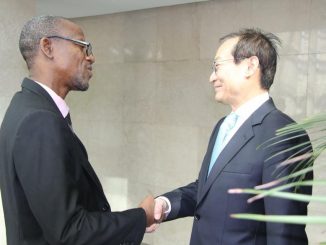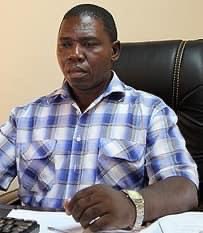
Poor sanitation practices rife in Sierra Leone
By Diana Coker
Sierra Leone is no exception to other countries in Africa that are still struggling to accelerate access to improve sanitation for all, as a result of poor and inadequate sanitation facilities.
Ahead of The Africa Sanitation Conference (AfricaSan) in Cape Town, South Africa, open defecation still poses a major health challenge to many underdeveloped countries, including Sierra Leone. There are still some communities in both rural and urban areas where the practice of open defecation and poor sanitation practices are rife.
Sierra Leone’s Auditor General Report of 2017, released this year, highlighted that water, sanitation and hygiene facilities were poor in some schools and virtually absent in others. (Source: Page xii of the Auditor-General’s Report 2017).
In addition, the 2017 Report also noted poor management of healthcare wastes at regional referral hospitals with no specific plan for healthcare waste activities, inefficient monitoring of waste management activities, inappropriate segregation and disposal of healthcare waste and lack of compliance with Healthcare Waste Standards. (Source:Page xii of the Auditor-General’s Report 2017).
Despite interventions being made by government and donor partners in tackling the issue, access to water and sanitation is a huge challenge for majority of citizens and this has been recognised by the United Nations as a human rights issue.
The Africa Sanitation Conference (AfricaSan) is the African Ministers Council on Water (AMCOW’s) flagship event on sanitation. It’s state intent is to increase opportunities for collaboration and partnership between ministers and high-level political decision makers, sector specialists, media and international organizations by facilitating Africa-centric hygiene and sanitation conversations.
AfricaSan5 is held concurrently with the 5th International Faecal Sludge Management Conference (FSM5), under the theme Transforming Sanitation in Africa Accelerating progress towards the Ngor Commitments to achieve the SDGs.
The FSM5 aims to bring together professionals working in the sector, including utilities, service providers, cities, governments, academics, scientists, consultants, donors and industries, to support the global initiative of disseminating sustainable solutions for Faecal Sludge Management.
WaterAid’s overall engagement objective is to advance a call to action for increased financing for sustainable sanitation services that are equitable and inclusive.
Key messages will be anchored on the need to accelerate equitable access to sanitation in Africa by investing in:
- Financing for WASH targeted at addressing inequalities
- Hygiene behaviour change, enabling policy environment and monitoring
- Female friendly toilets
- Sanitation workers
- Faecal sludge management
WaterAid will aim to use this important event to influence and maximise opportunities for networking, fundraising, etc. This will be aimed at ensuring WA adequately contributes to setting the agenda and charting the path of progress for sanitation in Africa. A particular emphasis will be on offering solutions by demonstrating what is working to support willing governments understand and adopt effective models and increase donor commitment fund sanitation better and in scaled up quantity.
This event is seen as an important opportunity for WA in 2019 to offer solutions with regards tackling WASH inequalities.



